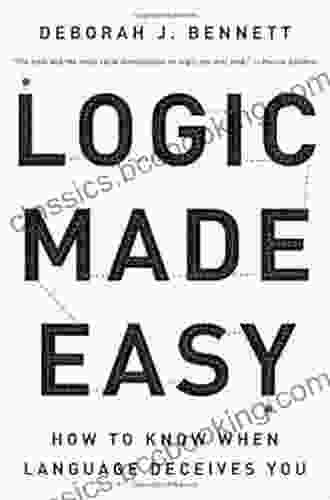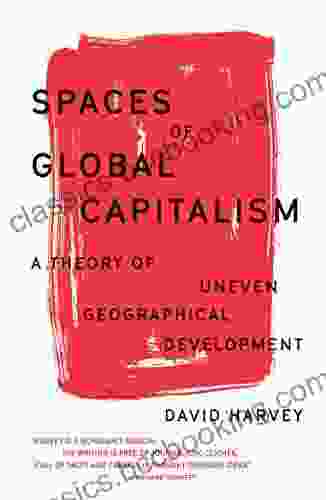Theory of Uneven Geographical Development: Transforming the Understanding of Regional Disparities

4.7 out of 5
| Language | : | English |
| File size | : | 1115 KB |
| Text-to-Speech | : | Enabled |
| Enhanced typesetting | : | Enabled |
| X-Ray | : | Enabled |
| Word Wise | : | Enabled |
| Print length | : | 161 pages |
| Screen Reader | : | Supported |
The Theory of Uneven Geographical Development is a revolutionary concept that has profoundly reshaped our understanding of economic disparities across regions. Developed by renowned economic geographers, including Paul Krugman, this theory challenges conventional economic theories and provides a comprehensive framework for analyzing and addressing regional inequalities.
Key Principles of the Theory
The Theory of Uneven Geographical Development is founded on several key principles:
- Path Dependence: Regional economies are shaped by historical path dependencies, meaning that past events and decisions have a lasting impact on their current development trajectory.
- Cumulative Causation: Economic growth and decline tend to be cumulative, with successful regions attracting further investment and resources, while less successful regions face increasing challenges.
- Spatial Lock-in: Regions can become locked into particular economic activities or industries, making it difficult to diversify and adapt to changing economic conditions.
Applications of the Theory
The Theory of Uneven Geographical Development has wide-ranging applications in various fields:
- Regional Policy: The theory provides insights for policymakers in designing effective interventions to promote balanced economic development and reduce regional disparities.
- Economic Development: It helps identify factors that contribute to economic growth and decline in specific regions, guiding targeted economic development strategies.
- Global Economic Geography: The theory sheds light on the spatial distribution of economic activities and the impact of globalization on regional development.
Implications for Policymakers
The Theory of Uneven Geographical Development has profound implications for policymakers tasked with addressing regional disparities:
- Recognizing Regional Differences: Policymakers must recognize the unique characteristics and challenges faced by different regions, tailoring interventions accordingly.
- Long-Term Perspective: Policies should adopt a long-term perspective, considering the cumulative effects of past and present decisions on regional development.
- Targeted Investments: Investments should be targeted towards regions with the greatest need and potential for growth, fostering spillover effects to neighboring areas.
Case Studies
Numerous case studies have demonstrated the practical applications of the Theory of Uneven Geographical Development:
- European Union: The theory has guided EU policies aimed at reducing regional disparities, including the establishment of the European Regional Development Fund.
- United States: The Appalachian Regional Commission has utilized the theory to implement economic development programs in the economically depressed Appalachian region.
- China: China's rapid urbanization and economic growth have been analyzed through the lens of the theory, highlighting regional disparities and the need for balanced development.
The Theory of Uneven Geographical Development is a groundbreaking concept that has revolutionized our understanding of regional disparities. It provides a powerful framework for analyzing economic development and guiding policy interventions aimed at reducing inequalities. By recognizing the principles of path dependence, cumulative causation, and spatial lock-in, policymakers can design more effective strategies to promote balanced economic growth and improve the well-being of communities across all regions.
Get Your Copy Today!
Free Download your copy of the Theory of Uneven Geographical Development today to gain a comprehensive understanding of this transformative concept and its implications for regional development.
Free Download Now
4.7 out of 5
| Language | : | English |
| File size | : | 1115 KB |
| Text-to-Speech | : | Enabled |
| Enhanced typesetting | : | Enabled |
| X-Ray | : | Enabled |
| Word Wise | : | Enabled |
| Print length | : | 161 pages |
| Screen Reader | : | Supported |
Do you want to contribute by writing guest posts on this blog?
Please contact us and send us a resume of previous articles that you have written.
 Book
Book Novel
Novel Page
Page Chapter
Chapter Text
Text Story
Story Genre
Genre Reader
Reader Library
Library Paperback
Paperback E-book
E-book Magazine
Magazine Newspaper
Newspaper Paragraph
Paragraph Sentence
Sentence Bookmark
Bookmark Shelf
Shelf Glossary
Glossary Bibliography
Bibliography Foreword
Foreword Preface
Preface Synopsis
Synopsis Annotation
Annotation Footnote
Footnote Manuscript
Manuscript Scroll
Scroll Codex
Codex Tome
Tome Bestseller
Bestseller Classics
Classics Library card
Library card Narrative
Narrative Biography
Biography Autobiography
Autobiography Memoir
Memoir Reference
Reference Encyclopedia
Encyclopedia David Remnick
David Remnick David Colbert
David Colbert David Ehrlichman
David Ehrlichman David Shoemaker
David Shoemaker David Rosenfelt
David Rosenfelt David Mcilroy
David Mcilroy David Hancock
David Hancock Darrel L Graham
Darrel L Graham David C Tucker
David C Tucker David Hobbs
David Hobbs David Lebovitz
David Lebovitz David E Stannard
David E Stannard David Mann
David Mann David Kerr
David Kerr David M Wilson
David M Wilson Danny Jones
Danny Jones David L Lewis
David L Lewis Daniel Tudor
Daniel Tudor Darren Kirby
Darren Kirby David Leddick
David Leddick
Light bulbAdvertise smarter! Our strategic ad space ensures maximum exposure. Reserve your spot today!

 Emmett Mitchell50 Fun Recipes Kids Will Love To Bake: A Culinary Adventure for Young Chefs
Emmett Mitchell50 Fun Recipes Kids Will Love To Bake: A Culinary Adventure for Young Chefs
 Pat MitchellGeology Underfoot In Western Washington: A Window into Earth's Dynamic Past...
Pat MitchellGeology Underfoot In Western Washington: A Window into Earth's Dynamic Past... Enrique BlairFollow ·2.7k
Enrique BlairFollow ·2.7k Manuel ButlerFollow ·2.1k
Manuel ButlerFollow ·2.1k Ivan TurnerFollow ·14.3k
Ivan TurnerFollow ·14.3k Miguel NelsonFollow ·14.5k
Miguel NelsonFollow ·14.5k Dakota PowellFollow ·2.7k
Dakota PowellFollow ·2.7k Avery SimmonsFollow ·6.4k
Avery SimmonsFollow ·6.4k Joel MitchellFollow ·12.7k
Joel MitchellFollow ·12.7k J.D. SalingerFollow ·12.3k
J.D. SalingerFollow ·12.3k

 Cameron Reed
Cameron ReedHow to Know When Language Deceives You
Unmasking the Power of...

 Robbie Carter
Robbie Carter50 Things To Know About Planning Home Schooling...
: The Power of Hands-On Learning Embarking...

 Julio Cortázar
Julio CortázarCalculus: Single and Multivariable, 8th Edition — The...
Calculus is the...

 Jaime Mitchell
Jaime MitchellBunnicula and Friends: A Spooktacular Tale of Mystery and...
In the quaint little town of Celeryville,...

 Josh Carter
Josh CarterPeppa Easter Egg Hunt: Join Peppa Pig on an...
Get ready for...

 Donovan Carter
Donovan CarterBoy Called Dickens: A Journey into the Childhood of a...
Delving into the...
4.7 out of 5
| Language | : | English |
| File size | : | 1115 KB |
| Text-to-Speech | : | Enabled |
| Enhanced typesetting | : | Enabled |
| X-Ray | : | Enabled |
| Word Wise | : | Enabled |
| Print length | : | 161 pages |
| Screen Reader | : | Supported |







